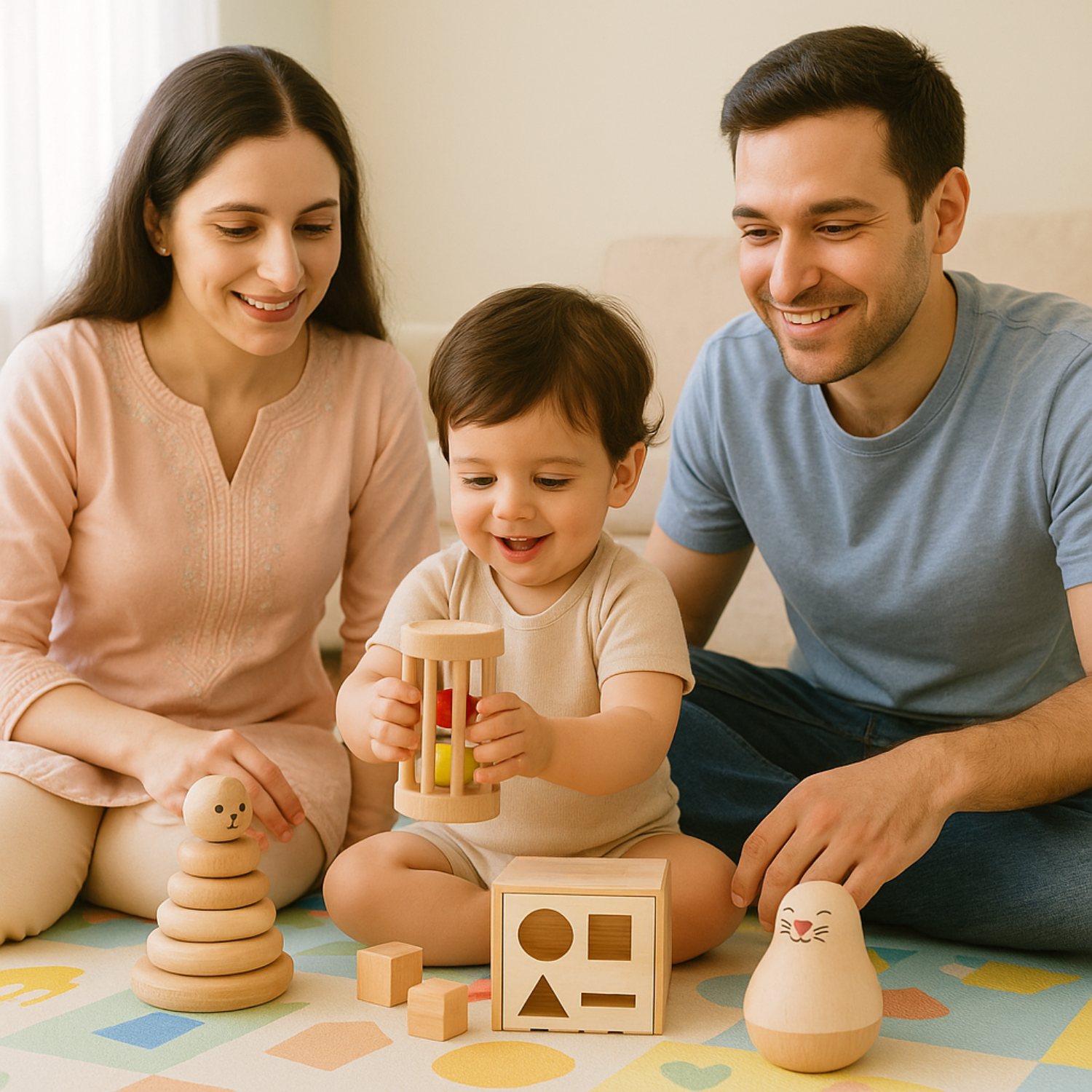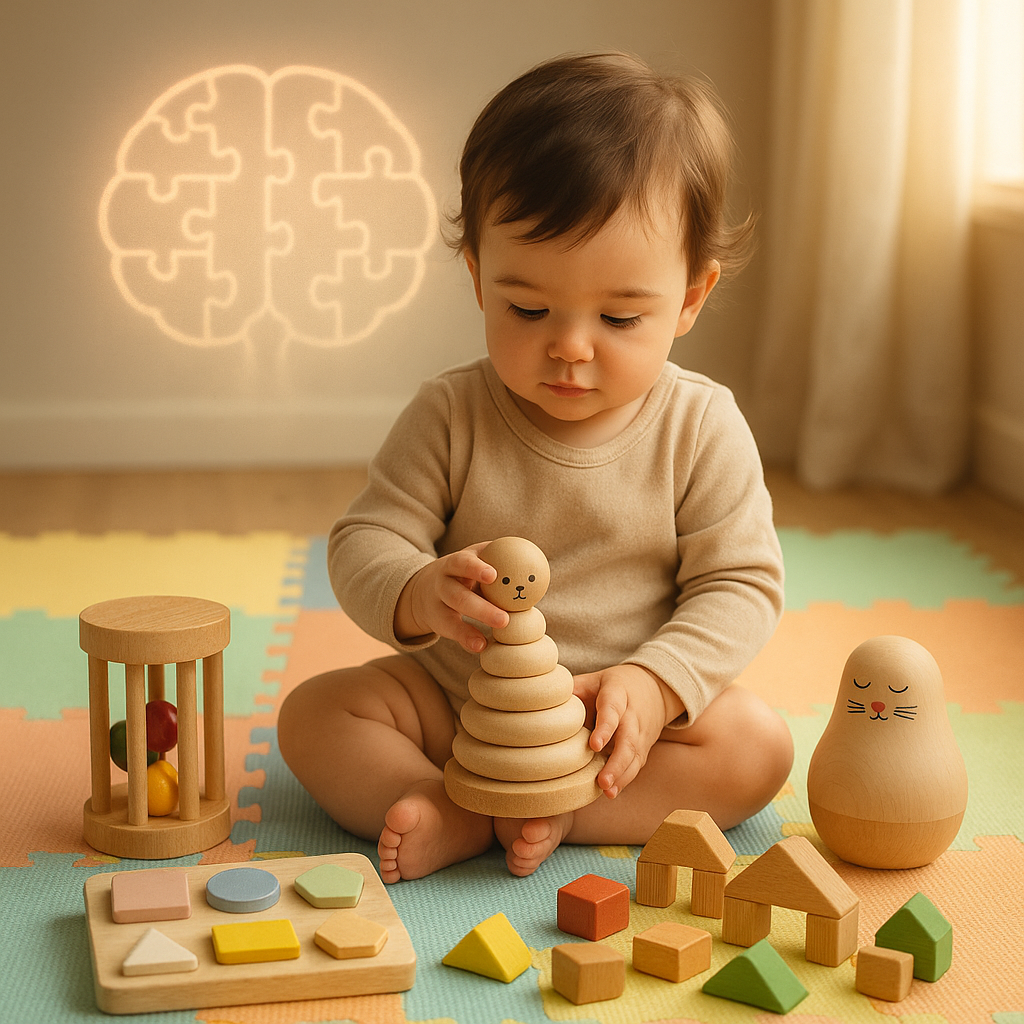Article: The Importance of Age-Appropriate Toys

The Importance of Age-Appropriate Toys
The Importance of Age-Appropriate Toys
Selecting the right toys for children involves more than just picking what looks fun or popular. The concept of age-appropriate toys is critical to ensuring that playtime is not only enjoyable but also beneficial for a child’s development. Toys that match a child’s developmental stage can help them build essential skills, foster creativity, and provide the right level of challenge without leading to frustration or boredom. Here’s why choosing age-appropriate toys is so important.
Developmental Milestones and Learning
Children go through various developmental stages as they grow, each with specific milestones in cognitive, physical, social, and emotional development. Age-appropriate toys are designed to align with these milestones, offering activities and challenges that are suitable for a child’s current abilities. For instance, a soft rattle is perfect for an infant who is just beginning to grasp objects and explore sounds, while a more complex toy like a jigsaw puzzle is better suited for an older child who is developing problem-solving skills.
Toys that match a child’s developmental stage help reinforce the skills they are learning at that time. For example, toddlers benefit from toys that encourage walking, sorting, and basic problem-solving, like shape sorters or push toys. These toys help toddlers refine their motor skills and begin to understand cause and effect. On the other hand, toys that are too advanced may overwhelm a child, leading to frustration and a potential loss of interest in the activity.
Encouraging Healthy Play and Exploration
Age-appropriate toys foster a healthy sense of exploration and achievement. When children play with toys that are suited to their developmental stage, they can successfully engage with the toy, which boosts their confidence and encourages further exploration. This sense of accomplishment is crucial for building self-esteem and a love of learning.
For instance, preschoolers who are developing their fine motor skills and hand-eye coordination will find toys like building blocks or simple art supplies both challenging and rewarding. These toys provide a manageable challenge that encourages persistence and creativity without causing unnecessary frustration.
Safety Considerations
Safety is another crucial reason to select age-appropriate toys. Younger children, especially infants and toddlers, are more likely to put objects in their mouths, so toys for these age groups must be free of small parts that could pose a choking hazard. Toys for older children can include more intricate and smaller components, as these children are less likely to engage in such behavior.
Manufacturers provide age recommendations based on safety standards and developmental appropriateness, making it easier for parents and caregivers to select toys that are not only fun but also safe.
Preventing Boredom and Overstimulation
Toys that are too simple for a child’s age can quickly become boring, leading to disinterest and missed opportunities for learning. Conversely, toys that are too complex can overstimulate or frustrate a child, hindering their ability to learn and enjoy playtime. Age-appropriate toys strike the right balance, offering just enough challenge to keep a child engaged while supporting their developmental needs.
Conclusion
Choosing age-appropriate toys is essential for ensuring that playtime contributes positively to a child’s development. These toys are carefully designed to meet the specific needs of each developmental stage, offering the right balance of challenge, safety, and enjoyment. By providing children with toys that match their age and abilities, parents and caregivers can support healthy development, foster a love of learning, and ensure that playtime is both safe and enjoyable.


Leave a comment
This site is protected by hCaptcha and the hCaptcha Privacy Policy and Terms of Service apply.